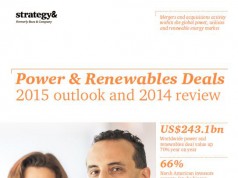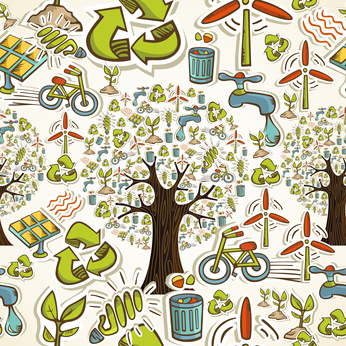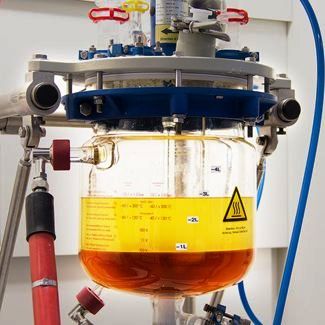 Davos-Klosters, Switzerland – Progressive companies and forward-looking governments are shifting their attention from old-style sustainability – a linear concept that goes from take and use to dispose – towards a “circular” approach. This “circular” approach effectively decouples growth from rising resource constraints in a world that will add 3 billion middle-class consumers over the next 15 years, participants at the 44th World Economic Forum (WEF) Annual Meeting were told.
Davos-Klosters, Switzerland – Progressive companies and forward-looking governments are shifting their attention from old-style sustainability – a linear concept that goes from take and use to dispose – towards a “circular” approach. This “circular” approach effectively decouples growth from rising resource constraints in a world that will add 3 billion middle-class consumers over the next 15 years, participants at the 44th World Economic Forum (WEF) Annual Meeting were told.
Speaking at a session, ‘From Waste to Wealth’, Ellen MacArthur, Founder, Ellen MacArthur Foundation, United Kingdom, said, “The circular economy opens up ways to reconcile the outlook for growth and economic participation with that of environmental prudence and equity. It is inspiring CEOs, politicians, engineers, designers and the next generation of leaders,” she said.
Leading global companies are already building the concept of the circular economy into the way they do business. It is helping them to drive innovation across product design, to develop product-to-service approaches, and to test new ways of recovering materials from redundant products such as old mobile phones.
Heineken, for example, is now pursuing circular practices across its whole value chain.
“We started out on this journey responding to pressures from environmental groups, but we soon learned that it makes sense to think holistically about everything we do, from treating the water we use and conserving energy to composting yeast and recycling bottles and aluminum cans,” Jean-François van Boxmeer, Heineken’s Chairman of the Executive Board and Chief Executive Officer, said.
The Netherlands, which has half its surface area under sea level and a population that is aware of the importance of respecting nature, has embraced the approach. China, too, is a leader and has adopted the circular approach in its latest five-year plan.
Another Dutch company, Royal Philips, has moved rapidly from dealing with hazardous materials and conserving energy to a circular approach that Frans van Houten, President and Chief Executive Officer, credits with a number of breakthroughs.
“We are a major producer of LED lights, but when we introduced this energy efficient technology, municipal customers railed against the additional cost for lighting their streets. Our response was to offer them lighting services rather than selling them bulbs, allowing them to take advantage of energy savings without having to pay higher upfront costs,” he said.
Circular manufacturing has huge economic potential. The European market for fast-moving consumer goods totals €3.2 trillion a year, of which 20% could be recuperated through smart circular practices, MacArthur said. With early adopters moving ahead, how can we accelerate these processes?
“We need to shift our thinking away from the idea of consumption and eliminate the whole idea of waste. This means thinking about meeting people’s needs through services rather than consumption,” William McDonough, Consulting Professor of Civil and Environmental Engineering, Stanford University, USA, said. “When was the last time you consumed a TV set?” he asked.
Cutting-edge thinking in the scientific community is moving us rapidly from linear to circular. The next big thing is what Neil Gershenfeld, Director, The Center for Bits and Atoms, Massachusetts Institute of Technology (MIT), USA, described as analogue materials. These contain digitized information that enables them to disassemble the elements that initially went into their fabrication and make them available for re-use.
The Annual Meeting 2014 took place from 22 to 25 January under the theme, The Reshaping of the World: Consequences for Society, Politics and Business. Participating this year were over 2,500 leaders from nearly 100 countries, including 300 public figures, 1,500 business leaders and representatives from civil society, academia, the media and arts.
The Co-Chairs of the Annual Meeting 2014 were: Aliko Dangote, President and Chief Executive Officer, Dangote Group, Nigeria; Kris Gopalakrishnan, President, Confederation of Indian Industry (CII); Vice-Chairman, Infosys, India; Jiang Jianqing, Chairman of the Board, Industrial and Commercial Bank of China, People’s Republic of China; Joseph Jimenez, Chief Executive Officer, Novartis, Switzerland; Christophe de Margerie, Chairman and Chief Executive Officer, Total, France; Marissa Mayer, Chief Executive Officer, Yahoo, USA, and Judith Rodin, President, Rockefeller Foundation, USA.
According to a new report based on the same theme and released during the event by the World Economic Forum, in collaboration with the Ellen MacArthur Foundation, over US $ 1 trillion a year could be generated by 2025 for the global economy and 100,000 new jobs created for the next five years if companies focused on encouraging the build-up of “circular” supply chains to increase the rate of recycling, reuse and remanufacture. This would maximize the value of materials when products approach the end of their use.
The report, titled “Towards the Circular Economy: Accelerating the Scale-up Across Global Supply Chains”, analyses the economic benefits for businesses shifting towards a circular economy, which rethinks today’s consumption patterns of “take, make and dispose” to a more restorative process, where products are designed and marketed such that components and materials can be reused many times.
“The circular economy is an opportunity industry can’t afford to miss,” said Sir Ian Cheshire, Group Chief Executive of Kingfisher. “It can drive our next generation of innovation and business growth, cushion our business from price volatility, provide us with competitive advantage, and help us build better relationships with customers and suppliers.”



















